Tackling loneliness the digital champion way
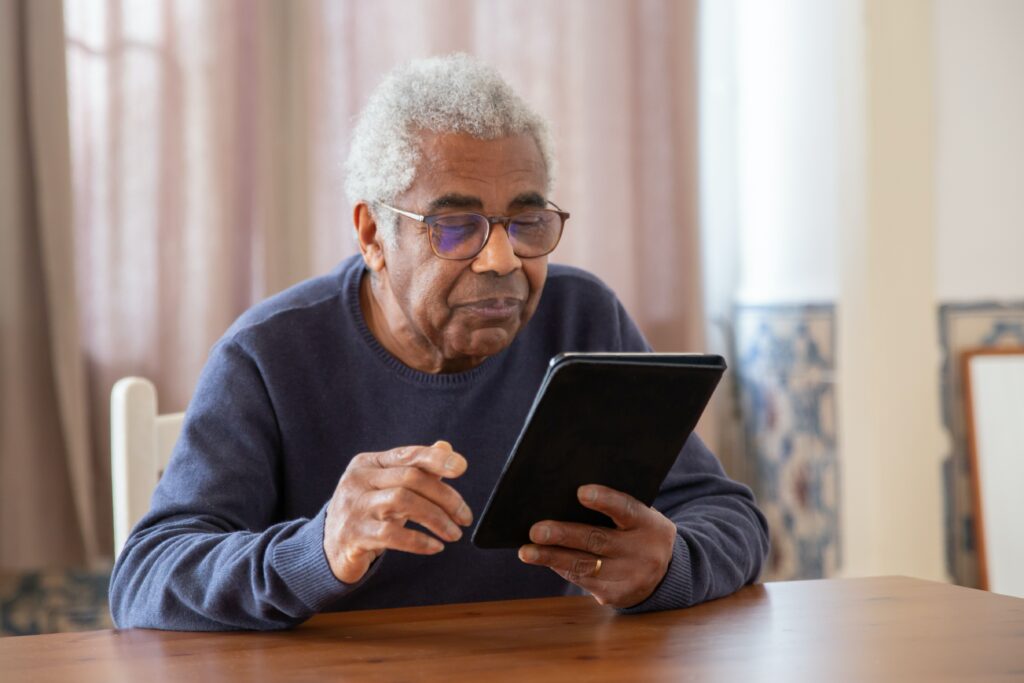
Emma Weston OBE, Chief Executive of Digital Unite discusses the peer-to-peer model of providing digital skills support and how it is effective in reducing the barriers of digital exclusion and social isolation.
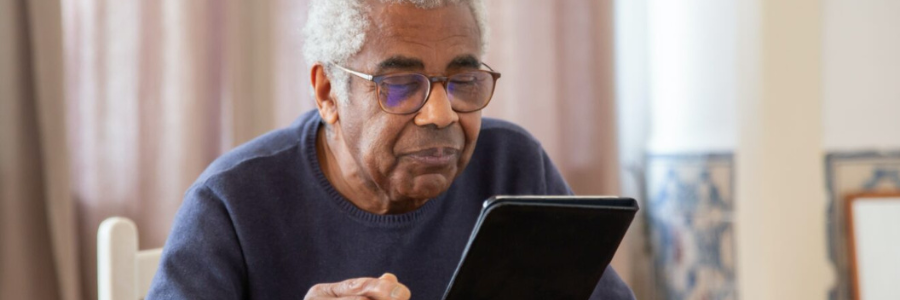
The power of digital technology
Doris is 82 years and lives alone. At the start of the pandemic, she struggled to maintain her social interactions and, with her family unable to visit her, she felt very, very alone. And fearful too. Her family were worried. Doris already had wi-fi so her daughter, Gail, bought an iPad, set it up in advance and then posted it to her mum.
With some regular and careful calls, Gail and her sister managed to teach Doris how to use Facebook Messenger. Then, every Sunday afternoon at 3pm, they all gathered on a video call to do a crossword. And to this day, they still do. As Doris says; “It’s been a wonderful way of connecting with my daughters, We all live in different places around the country so it brings them closer to me.”
The power of digital technology to reduce loneliness and isolation has always been strongly evidenced. But, for reasons we all know, Covid-19 amplified its profound benefits. The challenge, over the past couple of years, has been how to reach those people shut away in their homes, who weren’t as lucky as Doris with family support, but who desperately needed a way of staying connected with the outside world.
The Digital Champion light shone brightly during Covid-19
And that’s where the Digital Champion approach has shone through. This peer-to-peer model of providing digital skills support has shown itself to be more effective than ever in reducing the barriers of digital exclusion and social isolation.
Organisations were able to adapt their Digital Champion approach and reach lots of people in lots of different ways. Digital helplines were launched and Digital Champions could be found at foodbanks, vaccination clinics and even on doorsteps. Champion support was promoted via foodboxes, Meals on Wheels, Covid Community Response teams and resident groups.
Being able to provide support remotely became vital, helping people with digital skills over the phone and via video calls. But this raised new conundrums. How do you teach someone, often a complete beginner, when you’re not in the same room as them? How do you provide empathetic support when there are less visual clues to work with? How do you keep the sessions safe for everyone?
The answers to these questions have emerged and, at a time when loneliness and isolation was chronic for so many people, remote support has worked:
“The smile on a man’s face when he successfully got his tablet working and joined a video conference for the first time. He has a learning disability and lives alone. He hadn’t seen a human face for 5 days, he had a tablet, an easy read guide and phone support to learn to use it. His smile and his face lighting up will stay with me forever.” Clare, Digital Champion
Digital Champions are a vital link between digital and social connection
Now remote support is forming a permanent part of digital skills support as organisations recognise its valuable merits of reaching more people than ever before. 91% of organisations we work with say they’ll be providing remote digital skills support on an ongoing basis and 88% plan to run a mix of face-to-face and remote support into the future.
The UK has made five years’ worth of progress in one in terms of its digital engagement [Lloyds UK Consumer Digital Index 2021] . And the previously unmotivated are now dusting off their device and having a go. This is particularly true amongst older people, often the most socially isolated group. Recent ONS research shows that the number of those aged 75 and over going online, has nearly doubled since 2013. People are becoming braver and bolder with digital technology. Now is the time to capitalise on this.
Employers must play their role too
In today’s widely dispersed and remote-based workforces, employers too must think about the significant role they can play in the battle against loneliness. Promoting and supporting digital inclusion, while leveraging employee’s volunteering time, can promote connectedness in the workplace and beyond. We’re working with technology leader, Capgemini, to empower their employees to be Digital Champions. To do this at scale, with a coherent and quality assured approach, we developed Inspire, an online training programme that combines digital inclusion with employee volunteering.
The Inspire programme provides a powerfully simple approach to making a positive contribution to the loneliness agenda through digital inclusion. Inspire training helps employees understand the contribution they can make, and why it’s important. Jamie at Capgemini explains “Through Inspire, I understand now the importance of everyone having good digital skills in today’s society.” He’s not alone. In the past year, 868 employees like Jamie have joined Inspire to make a difference, nourish a digital connection, with someone else.
Without a doubt, digital connects people locally and socially. When we were all confronted with a lack of social interactions during the pandemic, technology was a vital tool for staying connected and alleviating loneliness. A Digital Champion approach has the power and versatility to ride any storm and help people use digital tools as a force for social good.
As one of our Network members said: “Digital communities can have a crucial role to play in reducing social isolation. Digital Champions are the key to helping these emerging communities grow.” Nicky Hazelwood, Community Investment Manager, Hexagon Housing Association.
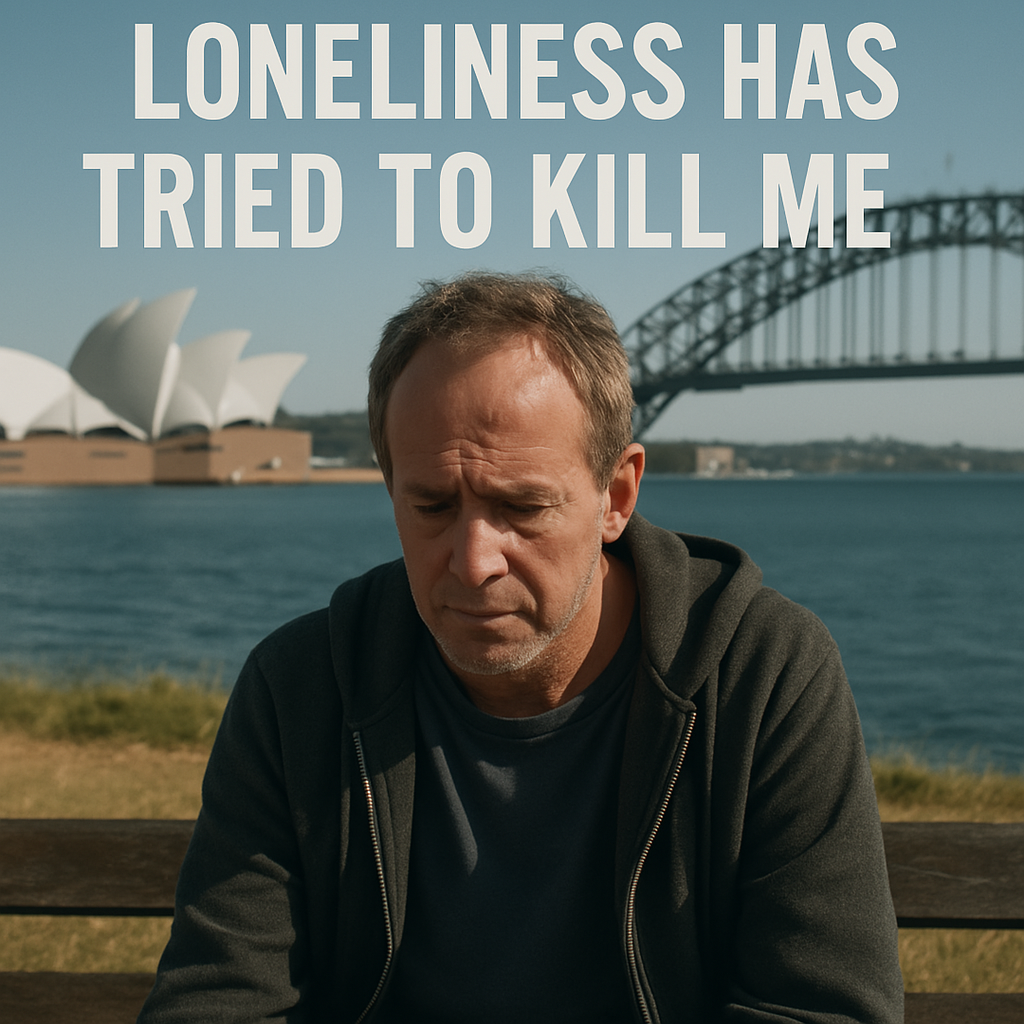

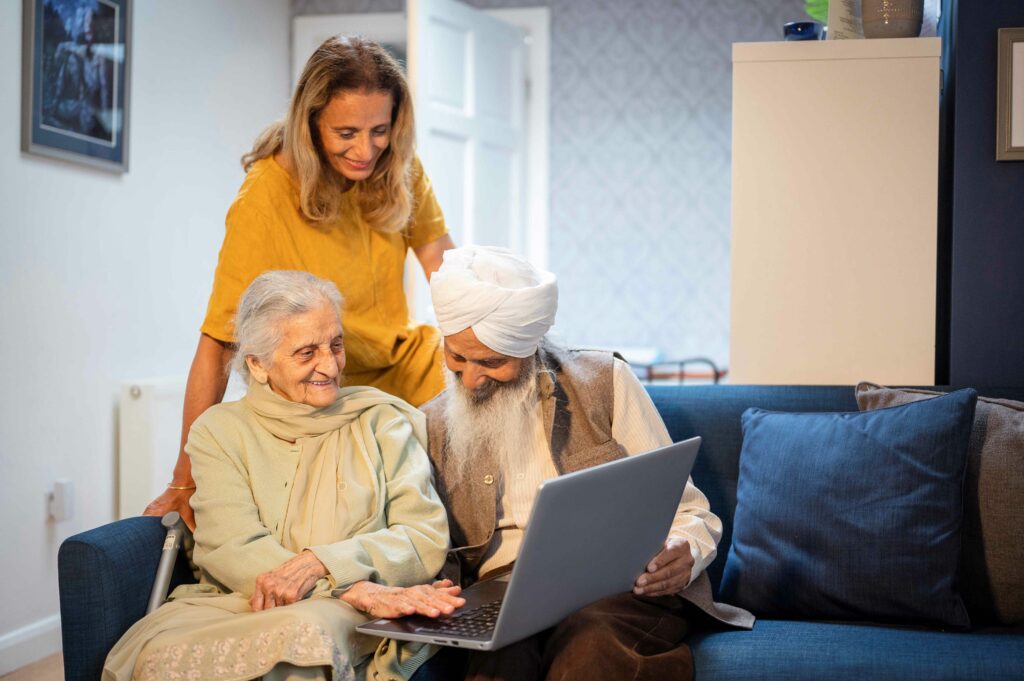

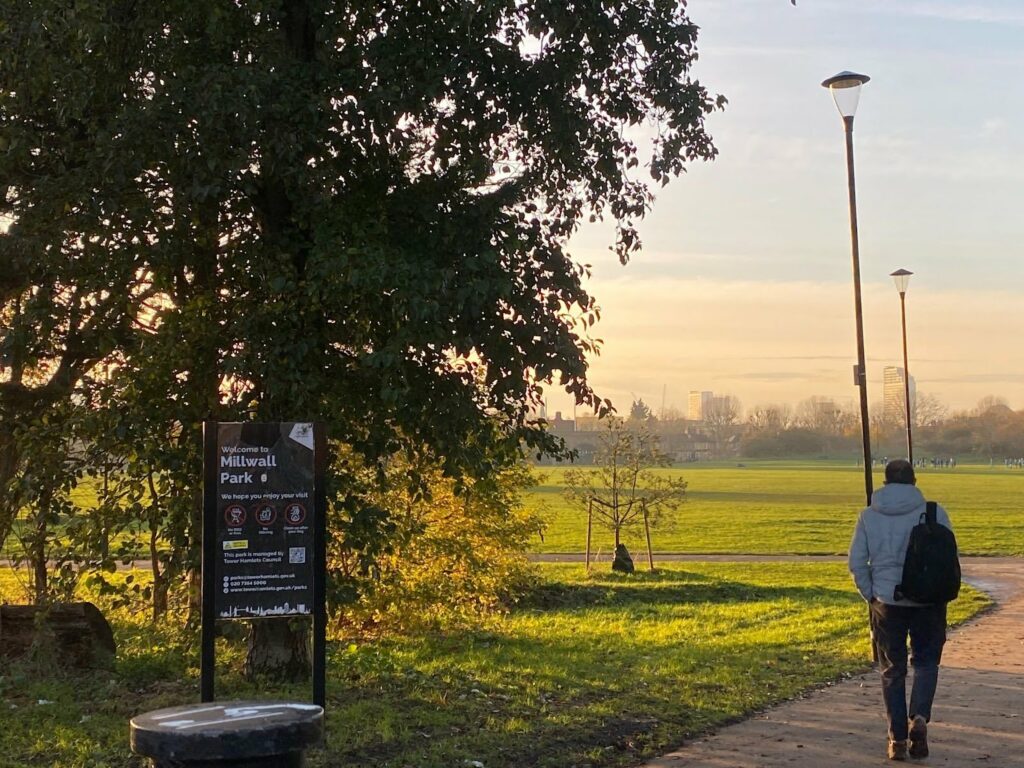
Thank you to @emmaweston for this week’s blog post. If you have any thoughts / questions about digital inclusion, reach out to Emma with your questions!